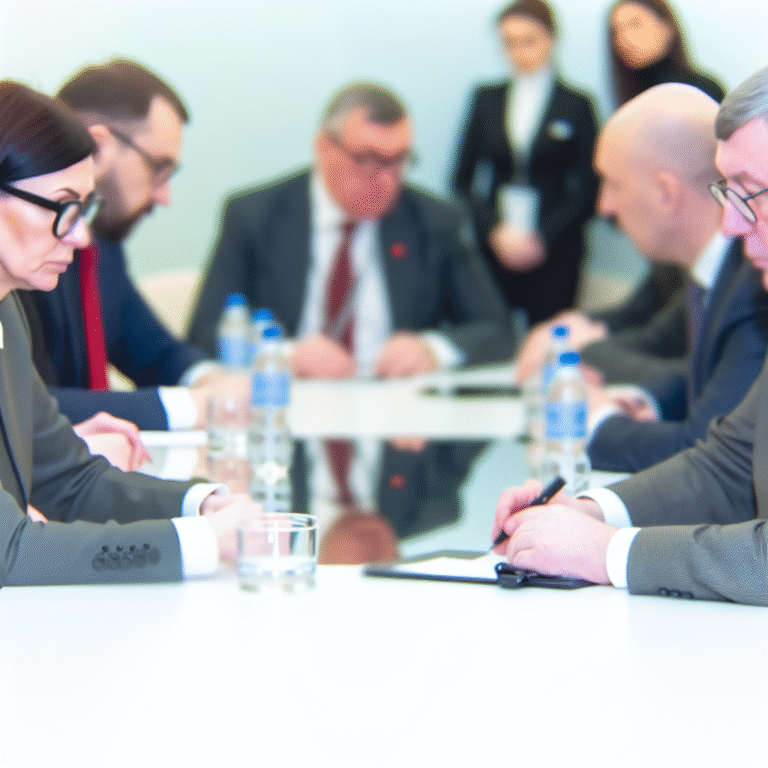Understanding the Geopolitical Tensions Over Greenland
As discussions loom ahead of the upcoming Arctic Council meeting, the intricate dynamics surrounding Greenland’s relations with Russia are coming to the forefront. Analysts suggest that if Russian delegates were to visit Greenland, former President Donald Trump might frame this engagement as a significant outreach by Greenland towards Russia. This could serve as a convenient narrative for him, emphasizing the alleged Russian influence and the necessity for American dominance in the region.
Rasmus Sinding Søndergaard, a researcher focused on American foreign policy at the Danish Institute for International Studies, provides insight into these complex interactions. He notes that while Greenland’s leaders from the Siumut and Naleraq parties are keen to engage in dialogues with the Arctic nations to reaffirm the principles of peace and cooperation outlined in the Ilulissat Declaration, this pursuit could trigger a different interpretation in the United States.
SØNDERGAARD elaborates, “For Trump, any movement toward a closer relationship between Greenland and Russia could be spun as a justification for American control over Greenland.”
Notably, on Friday, KNR reported that Siumut and Naleraq had decided to pursue diplomatic channels with the five Arctic nations—including Russia—to emphasize their commitment to maintaining a peaceful and stable Arctic region. Peace researcher Isabel Bramsen from Lund University has also indicated that establishing a dialogue with Russia might be beneficial, especially as Greenland enhances its military presence.
Contrasting Approaches in Washington
The current administration under President Joe Biden has taken a cautious stance, opting against engaging in talks with Russia. In contrast, Trump’s approach has historically valued dialogue with adversaries as a pathway to peace.
Despite this alignment with the broader aims of peace and dialogue that Aleqa Hammond and Pele Broberg advocate, Søndergaard warns that the U.S. might still view these overtures with suspicion. “This desire for dialogue could be misinterpreted as a provocation. It’s advantageous for Trump to depict it as a warming of relations between Greenland and Russia, strengthening his argument for why the U.S. should assert control over the territory.”
He further reflects on whether this outreach could be perceived as an ideological gesture to Trump, demonstrating a willingness for dialogue similar to his own. “I understand the concerns,” he admits. “Greenland’s engagement with Russia could echo Trump’s own interactions with the country, and given his particular interest in Greenland, it could become a tool for him to assert greater control.”
The Arctic Council’s Role
Looking ahead, Søndergaard emphasizes the potential for the Arctic Council to facilitate cooperation between the U.S., Russia, and other nations. He suggests that Trump’s objections might not strictly oppose Russia’s participation in the Arctic Council; instead, his reservations may center around bilateral Greenland-Russia negotiations.
When considering the possibility of resumed dialogues, he remarks, “The tradition has not been for Americans to advocate turning the Arctic into a non-military zone; that responsibility has generally fallen on the Nordic nations.”
As the geopolitical chess game unfolds, the Arctic Council remains a crucial platform for engaging these complex relationships, where the stakes are high, and the implications extend far beyond the icy terrain of Greenland.
